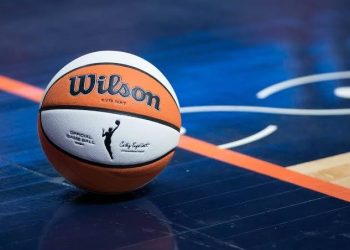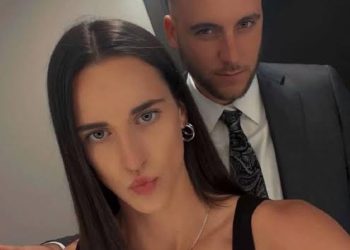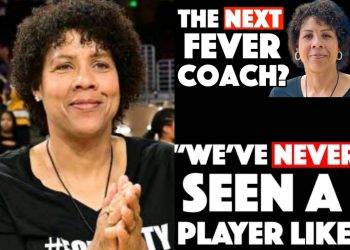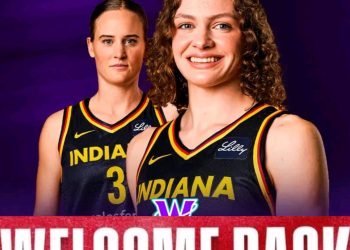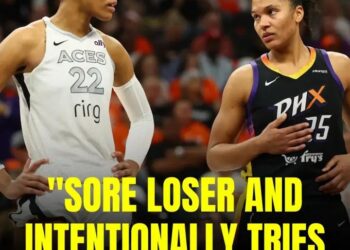At the 2018 WNBA draft, UConn standout Gabby Williams was selected 4th overall by the Chicago Sky. Expectations soared. But after early success, turbulence followed: uneven playing time, overseas commitments, and suspension during her time with Chicago and Los Angeles. It all built to a pivotal moment. Then came Seattle — and a transformation worthy of its own spotlight.
—
🏀 From Turbulent Years to Stability
Between 2018 and 2021, Williams struggled to find stability. She shifted between the Sky and Sparks, frequently splitting time overseas — a common move for WNBA players seeking better pay. In 2021, when Williams honored her French national team commitments for EuroBasket and the Tokyo Olympics, Chicago suspended her, citing prioritization rules . The episode was a wake-up call.
As Williams later reflected to Andscape, “maybe people aren’t investing in me the way I’m investing in them. So let me start investing in myself more” . She embraced her dual identity — American and French — using international play to carve out autonomy and share her story: she’s more than a role — she’s a player in charge of her own journey.
—
Seattle: A Fresh Start and Core Stability
Everything changed when the Seattle Storm acquired her in 2022. From the moment she cleared her schedule to commit to training camp, Williams found a new rhythm: she unpacked her suitcase, moved into her apartment, and made Seattle home . Gone were questions of next stops — there was only one stop, and she was there to stay.
Seizing the moment, the Storm designated her as a core player on a supermax contract — a first for Williams. The one‑year, $225,000 deal carried far more than a financial upgrade; it was a declaration: Seattle believed in her, and she believed in herself .
Coach Noelle Quinn praised Williams’ dedication: “she’s locked in. She wants to be great. She wants to be great for her teammates” . This trust changed the narrative — and Williams responded by delivering.
—
Career‑Highs Across the Board
In 2025, Williams posted a career-best season. She logged career highs in scoring, assists, 3-point percentage (standing at an impressive 41.2%), and steals, including WNBA-leading 2.6 steals per game .
Her stat sheet tells the story:
Two games with back-to-back double-doubles — 18 pts/12 rebounds and 12 pts/10 asts, one with eight steals (a franchise record) .
On-court presence shifted Seattle’s dynamic: in 479 minutes with Williams, the Storm were +102; without her, they were –36 .
Defensive rating with her on floor: 95.6 — among the league’s elite .
Williams wasn’t merely part of the team — she became its heartbeat.
—
Recognition: First‑Ever WNBA All‑Star
In July 2025, Williams earned her first-ever WNBA All‑Star nod — named a Western Conference reserve alongside teammates like Skylar Diggins and veteran stalwarts . The selection “justly rewards” her evolution into a two-way force, boosting her status across the league .
Despite some skepticism fueled by rejection from earlier coaches and franchises, Williams proved her voice and her performance aligned — and the league took notice.
—
More Than Basketball: Voice and Advocacy
Off-court, Williams amplified her impact. She’s emerged as a leading voice on players’ rights — openly criticizing the WNBA’s prioritization policy and highlighting salary inequalities, especially for rookies like Cathlin Clark, Paige Bueckers, and others, who sometimes make more through NIL deals than league pay .
She’s vocal: “Why should I [come late] if my salary is better [in Europe]?” . Her advocacy extends beyond herself — speaking about systemic change and encouraging younger players to assert their worth.
—
Seattle as Home
Williams didn’t just play in Seattle — she settled there. She embraced her role both on and off the court, opening in interviews that “When I’m here, I feel relaxed — like I can breathe” .
The feeling is mutual: Storm teammates see her as a spark and connector — “our best perimeter defender” says Diggins ; Quinn credits her work ethic ; international friends was watching her transform from afar.
—
Looking Ahead
At 28, Williams is positioned not only as a cornerstone in Seattle’s championship aspirations but also a growing voice in the broader basketball conversation. After this season, she’ll suit up overseas again — this time with Fenerbahçe, in the Turkish league — but will return to Airport Way in Seattle in November, stronger and more focused .
As the WNBA’s CBA nears renegotiation, her presence and testimony will carry weight. And in Seattle, a home that wants her, supports her, and celebrates her — both athlete and advocate — she’s precisely where she belongs.
—
In Summary
Gabby Williams’s journey is a study in resilience:
College dominance: NCAA titles with UConn.
Early pro struggles: instability, overseas detours, suspension.
Seattle arrival: core designation, security, training camp, full presence.
Breakout year: career highs, franchise-impacting stats, team lynchpin.
Recognition: first All‑Star appearance, team contender status.
Advocacy: championing pay equity and WNBA policies.
Security: a player at peace — personally, professionally, and geographically.
Seattle isn’t just another stop — it’s W
illiams’s home. And this season, she didn’t just play — she became an All‑Star.

